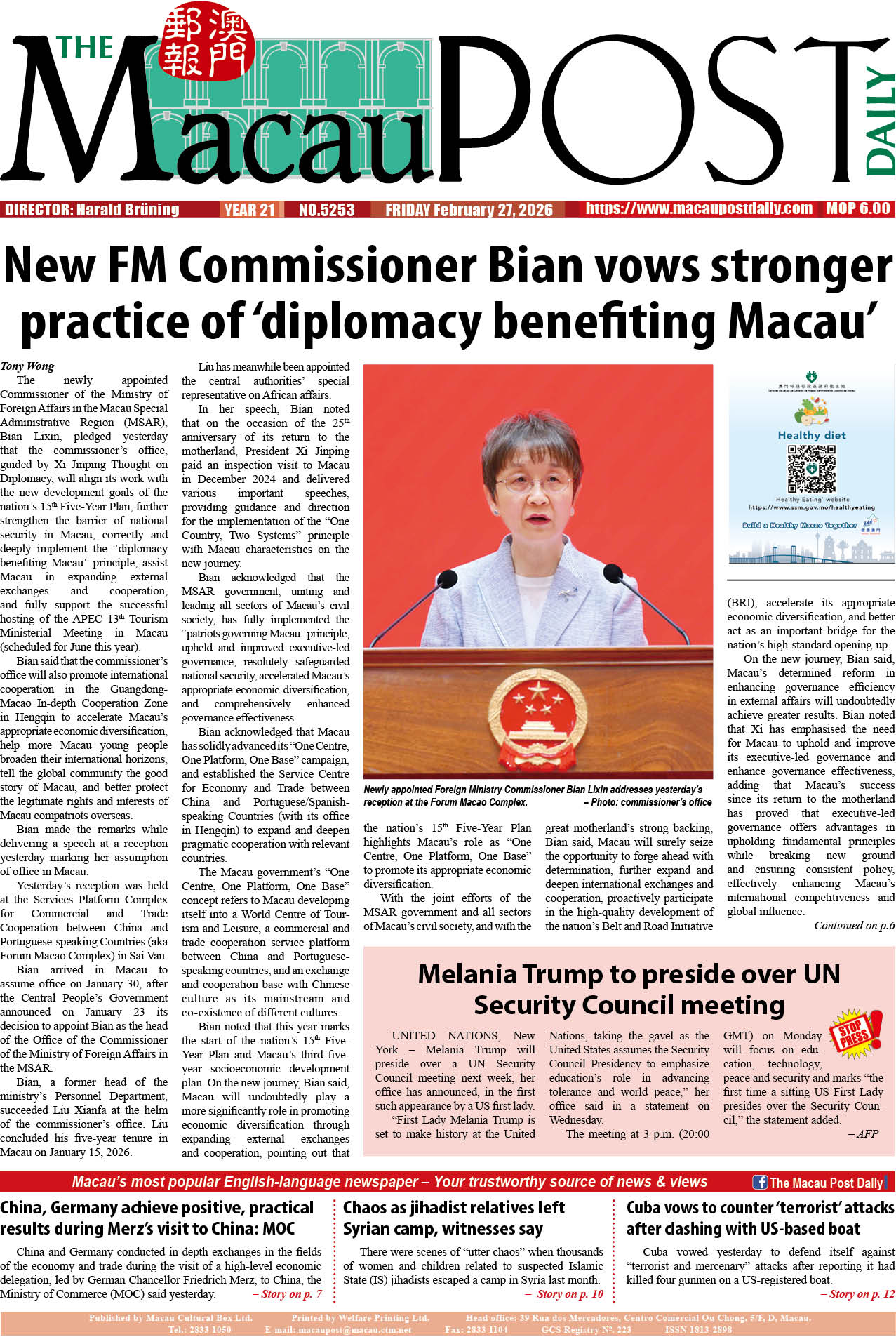No compensation for deceased worker for not wearing safety harness: court
2022-02-09 03:25
Comment:0
The family of a construction worker (referred to as A), who died in an industrial accident, won’t receive compensation from the insurance company as he was not wearing any safety harness when he fell, the Court of Final Appeal (TUI) said in a recent statement.
According to the statement, A was doing construction work on a casino-hotel’s external wall on June 16, 2019 at around 3 p.m. The statement pointed out that A was carrying out the scaffolding reinforcement work at the project, and was responsible for adding bamboo to an inclined board.
The statement added that when he was repairing a spot, which was 11 metres from the ground, he fell and was severely injured. The statement underlined that A wore a helmet, and was given a safety rope but it was taken away from him by a workmate after he had finished a previous job on the site before the accident happened, pointing out that consequently he was not wearing a safety harness when he fell.
The statement said that A was immediately rushed to the public Conde de São Januário Hospital Centre but he passed away at 10:16 p.m. on the same day. A’s wife and daughter took legal action urging A’s labour insurance provider (referred to as B) to pay compensation for the accident. However, the statement added, B’s disclaimer stated that if A did not wear safety gear working 30 feet (9.14 metres) above the ground, it would not need to compensate the family for their loss. However, the statement said, the disclaimer violates the “insurance premium charges and clause”, therefore the Court of First Instance (TBJ) said that B needed to pay for the family’s loss. The statement pointed out that B was not satisfied with the ruling and appealed to the Court of Second Instance (TSI).
The statement said that a TSI panel of judges noted that the contractor provided the required safety equipment needed for the task, but A consciously chose not to use it to work on the task. As a result, the statement added, A “unfortunately” fell and died. The statement said A’s decision not to wear a safety harness and not to abide by the safety requirement was the direct cause for his own death.
Meanwhile, the statement said that the information provided did not show that A’s decision not to wear the safety harness was based on a logical reason. The statement pointed out that as A had been working in the construction sector for many years, he should had known the importance of wearing safety harnesses during work. Therefore, the statement added, the disclaimer that the insurance company listed was reasonable –only covering injuries occurred when safety gear was worn –, adding that this disclaimer could increase construction workers’ awareness of wearing safety gear when working.
The statement underlined that therefore B does not need to compensate A’s family for their loss.
0 COMMENTS
Advertisement
LATEST NEWS
Casino receipts rise 4.5 pct to 20.6 billion patacas in February
Situation of the investments of the Financial Reserve of the Macao SAR in the year 2025
Norovirus cases rise 2.5 times in Jan: Macau Health Bureau
Macau eco-fair MIECF to return next month






